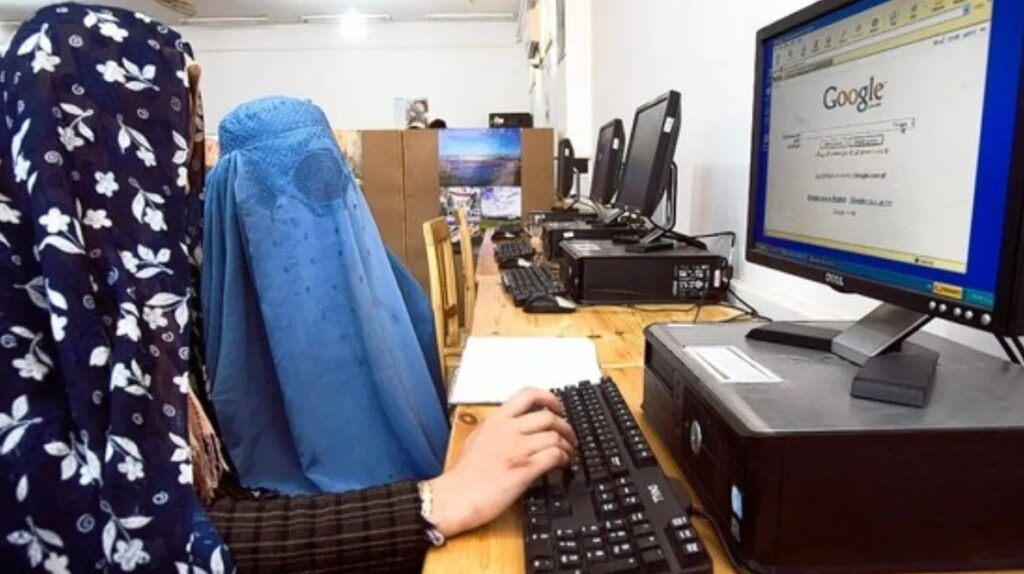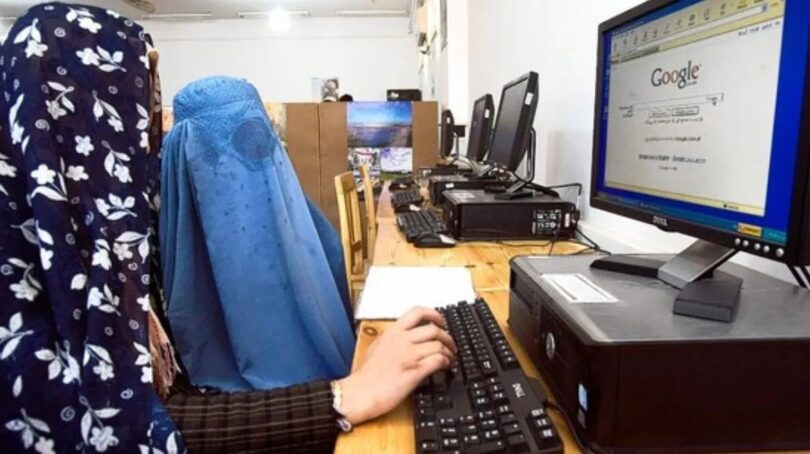On 29 September 2025, under the orders of Taliban, a nationwide shutdown of communications was initiated in Afghanistan. The internet and telecom services was disconnected across Afghanistan. The connectivity collapsed to less than one per cent of normal levels, according to Netblocks, a global internet watchdog, which stated that the shutdown amounted to "a comprehensive, or total blackout."
In the minutes before the cut off happened, a government official told Agence France-Presse news agency the shutdown would last “until further notice”.
This raises concerns given that it would not only cut the Afghan civilians from the access to the world, but it would certainly amount to isolating Afghanistan.
It was reported that the Taliban officials had begun to cut fibre optic connections in many provinces, limiting high-speed internet. On 16 September 2025, Balkh provincial spokesman Attaullah Zaid announced a complete ban on fibre optic services in the north, saying it was ordered to curb “vice."
Taking to X, Netblocks stated
“Afghanistan is now in the midst of a total internet blackout as Taliban authorities move to implement morality measures, with multiple networks disconnected through the morning in a stepwise manner; telephone services are currently also impacted,” said in a post on X.
⚠️ Update: #Afghanistan is now in the midst of a total internet blackout as Taliban authorities move to implement morality measures, with multiple networks disconnected through the morning in a stepwise manner; telephone services are currently also impacted pic.twitter.com/AlB6Tum8Dp
— NetBlocks (@netblocks) September 29, 2025
It was reported that the move was initiated by Taliban Supreme Leader Hibatullah Akhundzada, aimed to control high-speed internet access in regions across the country.
The Taliban government cited that need to cut the fibre optics stemmed from the need to censor content considered inappropriate under Taliban’s interpretation of Islamic law. This has caused concerns over the implications to follow. The crackdown has affected areas like Badakhshan, Takhar, Kandahar, and Helmand. In recent weeks, internet speeds have been slow and sparse across Afghanistan.
In 2024, the US-backed Afghan government had invested heavily in a 9,350-kilometre fibre optic network which aimed at improving connectivity and boosting economic growth. However, since 2021 after Taliban government came to power, many restrictions have been imposed on the digital space in accordance with Taliban’s interpretation of Sharia law.
Since the Shutdown, women and girls have been hit particularly hard, who have come to rely on online classes and remote work post the restrictions imposed by Taliban on female education.
The development coincides with the fourth anniversary of the Taliban’s ban on girls attending secondary school. Since then, the online schools became one of the last educational lifelines for Afghan girls and young women barred from classrooms and universities.
On 28 August 2025, the Taliban released an extensive list of university textbooks that they claim are “contrary to Sharia and in conflict with the policies of the regime.” The official letter, which was signed by Deputy Minister of Higher Education Sheikh al-Hadith Zia ur-Rahman Aryoubi, stated that a commission of religious scholars, Islamic culture experts, and professors of Sharia had reviewed the books for ideological, doctrinal, religious, policy, cultural, and academic content. The textbooks mentioned or reviewed were not only banned from classrooms but also prohibited as supplementary references.
The Taliban’s anti-woman policies have reduced women to the level of servants or commodities for bearing children. Taliban members have shown that their practice of polygamy as a display of power and a competition amongst their peers.

Women have been barred from medical institutes, forbidden to study clinical medicine, nursing, and advanced midwifery, and have been excluded from charity work and higher education. During the recent earthquake in Kunar province, a majority of female and child victims succumbed to their deaths as there were no female doctors, health workers, or women aid responders to help them.
Over the years, Taliban has been consistently tried to eliminate women from Afghanistan’s educational and academic history. In December 2022, women were barred from attending universities. In May 2024, to dissuade women in field of education, the salaries of female professors were slashed to 5,000 afghani (AFN) and ordered to be confined to their homes. Considering that minimum wage for non-permanent private sector workers in Afghanistan is AFN 5,500 per month and with civil servants are earning a minimum of AFN 6,000, this was a severe blow to the part of the society engaged in educating it. As per macroeconomic statistics, primary education is the single most important factor for economy growth and with that move the future of the economy was put in jeopardy. By May 2025, official positions of female professors from public university rosters were abolished, labelling the positions as “extra positions.”
In addition to impeding ban on women education in Afghanistan, the ban on movements in public spaces have had profound negative impact on society.
In August 2024, the Taliban introduced a law codifying morality provisions - “On the Promotion of Virtue and the Prevention of Vice”. The Article 13 stated that a woman must veil her body at all times in public especially the face to avoid temptation and from tempting others. Women are expected to cover themselves in front of non-Muslim males and females. These restrictions extended to ridiculous extent where a woman’s voice was regarded intimate, and as a result women have been banned from singing, reciting, or reading aloud in public.
The absurdities have left over 78 per cent of Afghan women unemployed or limited from acquiring any education or training. Hence half of the Afghan work force is not contributing to the economy in measurable ways.
US State Department’s spokeswoman Elizabeth Stickney said the US administration was closely monitoring the situation.
“These reports are very worrying, and we do not see these restrictions as helping the people of Afghanistan. On the contrary, these restrictions will have a negative impact on people’s lives and the economy,” she said.
The UN has also been campaigning to reverse the Taliban’s ban on girls’ secondary and higher education in Afghanistan, which has excluded over 1.4 million girls from school since August 2021.
UN agencies like UN Women and UNESCO have condemned the ban, highlighting that the violation of international human rights.
The UN Assistance Mission in Afghanistan has also been making consistent reports on the exclusion of women from education, employment, and training.
The ban will further affect businesses and contribute to the dire economic situation in the country. Fibre-optic internet has been primarily used by businesses, banks, and government agencies.
A number of businesses also reported that they will have to slash workforce, as they relied on the internet to sell their products. "We are blind without phones and internet," said 42-year-old shopkeeper Najibullah in Kabul. "All our business relies on mobiles. The deliveries are with mobiles. It's like a holiday, everyone is at home. The market is totally frozen."
With inventory across regions and industries remaining stale and not reaching the end consumers and being able to generate revenues and thus profits (as well as income for the workers), the economic prospects of many provinces is at heightened risk. The central government is likely to see the negative results of that from decreased taxes, which will result in less government spending and abandoning of important infrastructure and other projects.
Further implications can include jeopardising national security. Considering the frictions with Pakistan, which albeit being in serious economic woes, remains well funded through mechanisms by the World Bank and IMF, Afghanistan will soon find itself depleted from vital cash which can be used for defence. This will increase the need for outside help, which can be used by the US in their attempt to regain control of the Bagram Airbase at the cost of funding government projects and defence capabilities.
More on Afghanistan:
The US is upset that Afghanistan does not want to give the Bagram Airbase back: https://www.thestrategicperspective.org/us-taliban-scrimmage-over-the-afghan-bagram-air-base/
India successfully delivered fresh humanitarian aid to earthquake-affected Afghanistan via the Chabahar Port: https://www.thestrategicperspective.org/india-sends-fresh-aid-to-afghanistan-via-chabahar/
On July 17, 2025, Uzbekistan, Afghanistan, and Pakistan signed an agreement to conduct a feasibility study for the Trans-Afghan Railway: https://www.thestrategicperspective.org/uzbekistan-pakistan-and-afghanistan-sign-agreement-on-trans-afghan-railway/
A new container train from China to Afghanistan to promote Chinese influence in the region: https://www.thestrategicperspective.org/container-train-from-china-to-afghanistan-new-route/
India and Afghanistan had security and cooperation talks in Dubai and that did not resonate well with Islamabad: https://www.thestrategicperspective.org/india-afghanistan-talks-in-dubai-set-off-alarms-in-pakistan/
Pakistan blames India for their domestic failure and Afghan friction: https://www.thestrategicperspective.org/munirs-anti-india-prattle-and-blame-games/










